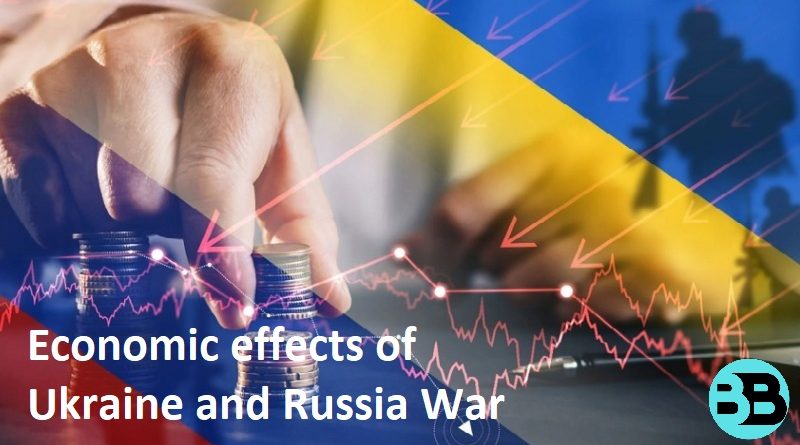Economic Effects of Ukraine – Russia War
The ongoing conflict between Ukraine and Russia has resulted in a range of economic impacts for both countries. The conflict began in 2014 when Russia annexed Crimea, leading to tensions and military conflict in eastern Ukraine. This paper will examine the economic effects of the Ukraine-Russia war, including the impacts on trade, investment, and the overall economic performance of both countries.
Trade Impacts
The war has had a significant impact on trade between Ukraine and Russia. Prior to the conflict, Russia was Ukraine’s largest trading partner, with the majority of Ukraine’s exports going to Russia. However, following the annexation of Crimea and the conflict in eastern Ukraine, Russia imposed trade sanctions on Ukraine, including restrictions on food imports, transit restrictions, and other barriers to trade.
These sanctions have had a significant impact on Ukraine’s economy, particularly on its agricultural sector. Ukraine was previously a significant exporter of agricultural products to Russia, but the sanctions have resulted in a significant decline in exports. In 2013, Ukraine exported $1.9 billion worth of agricultural products to Russia, but this fell to just $287 million in 2017. The decline in agricultural exports has had a ripple effect on other sectors of the Ukrainian economy, as agricultural production is an essential input for other industries such as food processing and manufacturing.
The trade sanctions have also had an impact on Russia’s economy, particularly on its food and agriculture industries. Russia imposed a ban on food imports from a range of countries, including the European Union and the United States, in response to sanctions imposed on Russia over the conflict in Ukraine. This has led to a shortage of food in Russia, particularly in the areas of fresh produce and dairy products, and has resulted in higher prices for consumers.
Investment Impacts
The conflict has also had a significant impact on foreign investment in both Ukraine and Russia. Foreign investors have been reluctant to invest in Ukraine due to the ongoing conflict and the country’s uncertain political and economic situation. In 2013, Ukraine received $4.6 billion in foreign direct investment, but this fell to just $1.9 billion in 2017.
Russia has also experienced a decline in foreign investment due to the conflict in Ukraine, as well as the imposition of sanctions by the international community. In 2013, Russia received $69 billion in foreign direct investment, but this fell to just $28 billion in 2017. The decline in foreign investment has had a negative impact on Russia’s economy, particularly on its energy sector, which has traditionally been a significant recipient of foreign investment.
Overall Economic Performance
The Ukraine-Russia war has had a significant impact on the overall economic performance of both countries. Ukraine’s economy has been particularly hard hit, with the country experiencing a recession in 2014-2015 and only returning to positive economic growth in 2016. The conflict has had a negative impact on Ukraine’s agricultural sector, as well as on its manufacturing and energy sectors.
In addition to the impact on specific sectors, the conflict has also had a broader impact on Ukraine’s economic performance. The conflict has led to a decline in business confidence, with many companies reluctant to invest in Ukraine due to the uncertain political and economic situation. This has resulted in a decline in domestic investment, which has further exacerbated the country’s economic challenges.
Russia’s economy has also been impacted by the conflict, although to a lesser extent than Ukraine. The decline in oil prices since 2014 has had a greater impact on Russia’s economy than the conflict in Ukraine, as the country is heavily dependent on oil exports. However, the conflict has contributed to a decline in foreign investment and has resulted in economic sanctions being imposed on Russia by the international community.
In Conclusion
The Ukraine-Russia war has had a significant impact on the economies of both countries, with negative impacts on trade, investment, and overall economic performance. The trade sanctions imposed by Russia on Ukraine have resulted in a decline in Ukraine’s agricultural exports, which has had a ripple effect on other sectors of the Ukrainian economy. Russia has also experienced a decline in foreign investment due to the conflict and international sanctions, which has negatively impacted the country’s energy sector.
The conflict has had a significant impact on Ukraine’s overall economic performance, with the country experiencing a recession in 2014-2015 and struggling to attract foreign investment. The conflict has also led to a decline in business confidence and domestic investment, exacerbating the country’s economic challenges. Russia’s economy has also been impacted by the conflict, although to a lesser extent than Ukraine, with the decline in oil prices having a greater impact on the country’s economy.
In order to mitigate the economic impacts of the conflict, it is important for both countries to work towards a peaceful resolution. This could involve diplomatic efforts to resolve the conflict and lift sanctions, as well as policies to promote economic growth and attract foreign investment. In addition, both countries could explore opportunities for economic cooperation, such as joint investment projects and initiatives to promote trade.
Overall, the Ukraine-Russia war has had significant economic impacts on both countries, highlighting the importance of peaceful resolution and cooperation in promoting economic growth and stability.




